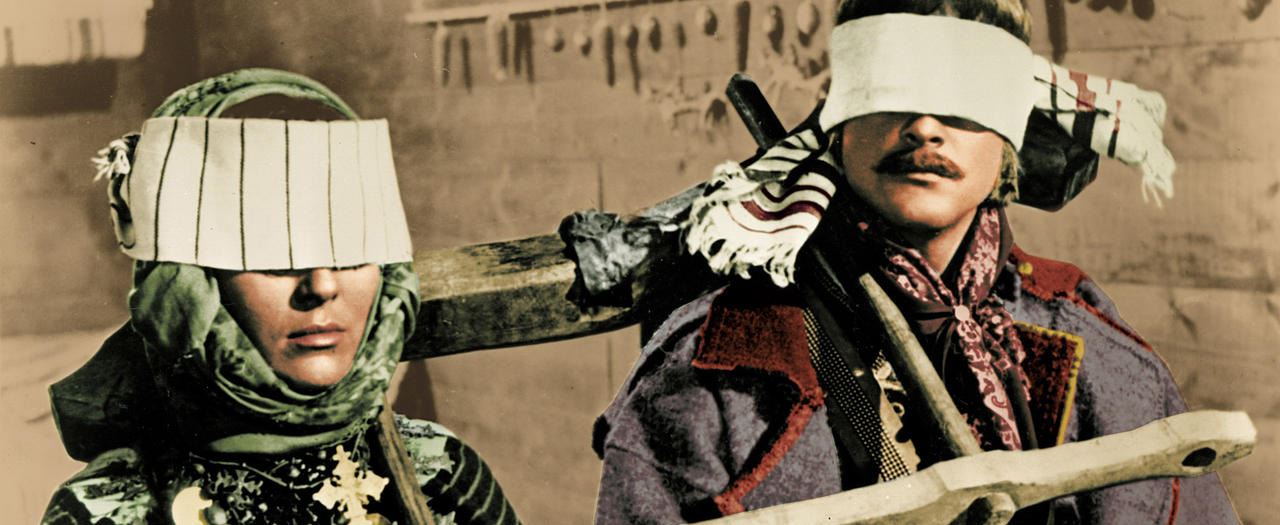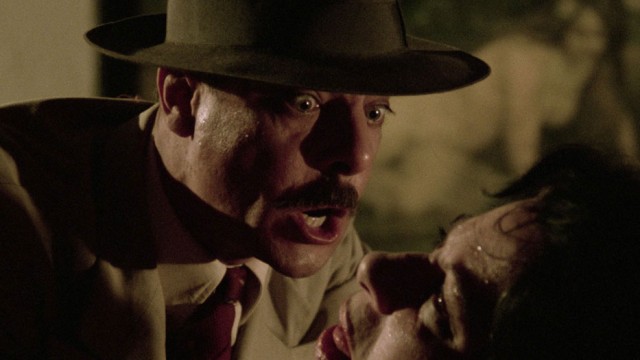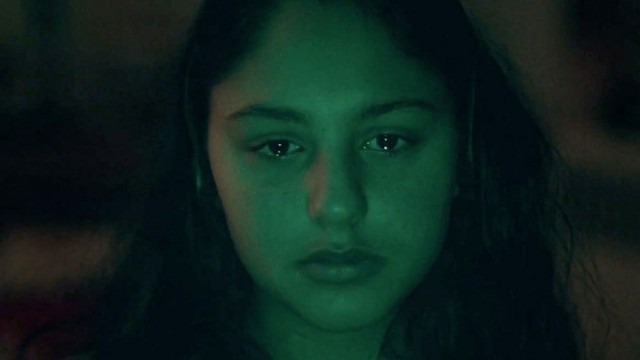Search The Archive
“Sergei Parajanov’s extraordinary merging of myth, history, poetry, ethnography, dance and ritual remains one of the supreme works of the Soviet sound cinema, and even subsequent Parajanov features have failed to dim its intoxicating splendors.” – Chicago Reader
Ivanko and Marishka are Romeo and Juliet by any other name: despite her father having killed his, and his mother cursing hers, the two’s love for each other defies their family’s longstanding feud, with tragic consequences.
Adapting Mykhailo Kotsiubynsky’s 1911 novel, Armenian director Sergei Parajanov created a masterpiece unrivalled even to this day. Like the novel, he was inspired by the traditional culture and folklore of the Hutsul people of the Carpathian Mountains, infusing it with symbolic and impressionistic colour, sound and fury. His determination to tell the story this way – eschewing the socialist realism mandated by the communist government – landed him in a Soviet gulag, branded a dissident. Despite this, as Roger Ebert noted in his 1978 review, the film won “almost every award in sight on the 1964 film festival circuit” (and even inspired Carl Sagan, whose book with Ann Druyan is named after the film). Yuri Ilyenko’s bombastic cinematography underscores the film’s allegorical, surreal and technically experimental flourishes, all in service of Parajanov’s aim to challenge the audience’s understanding of screen-based storytelling.
“A cinematic masterpiece, deconstructing the cinematic form and message and blowing the audience away with its multi-layered imagery … Pure genius.” – Empire
Shadows of Our Forgotten Ancestors is one of filmmaker Peter Strickland's selections for his MIFF retrospective: “To this day, I can’t think of any other filmmaker who could render folkloric and Orthodox imagery in such a bracingly heightened and flamboyant cinematic language. Parajanov’s film is an endless source of inspiration in terms of staging, sound and camera. A breath-taking surge of Carpathian psychedelia.”
For more detailed thoughts from Strickland on the films that have inspired him, read his blog.


